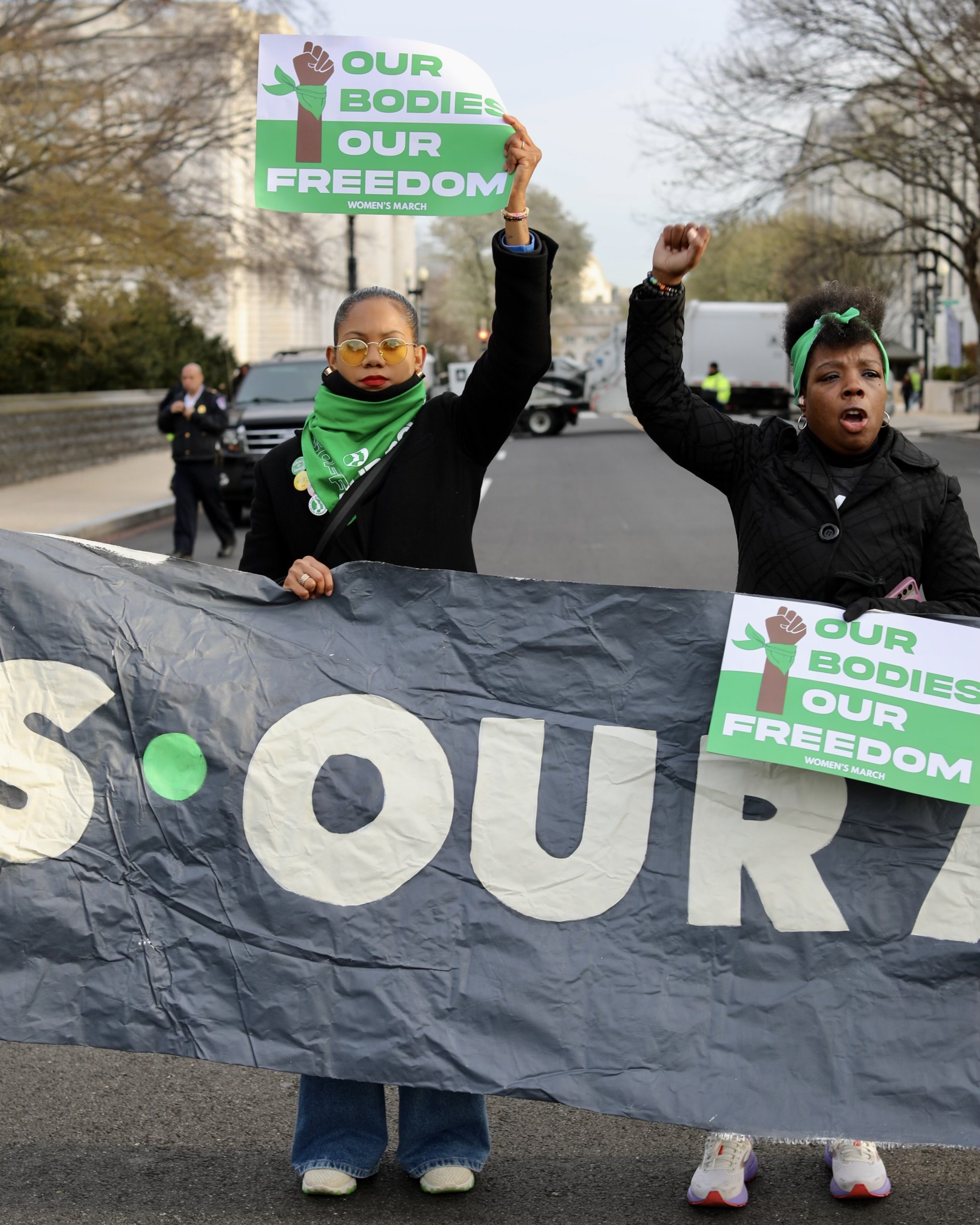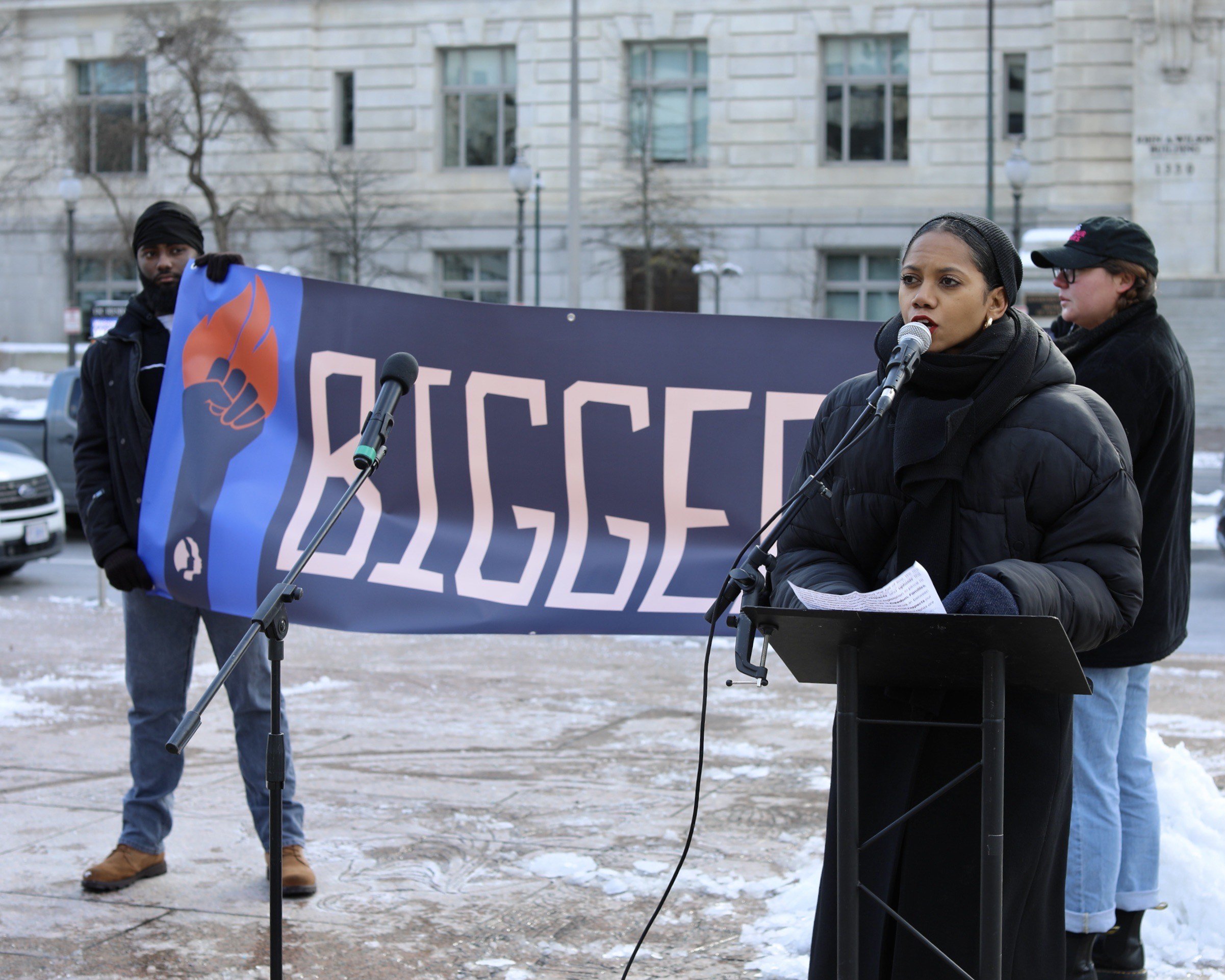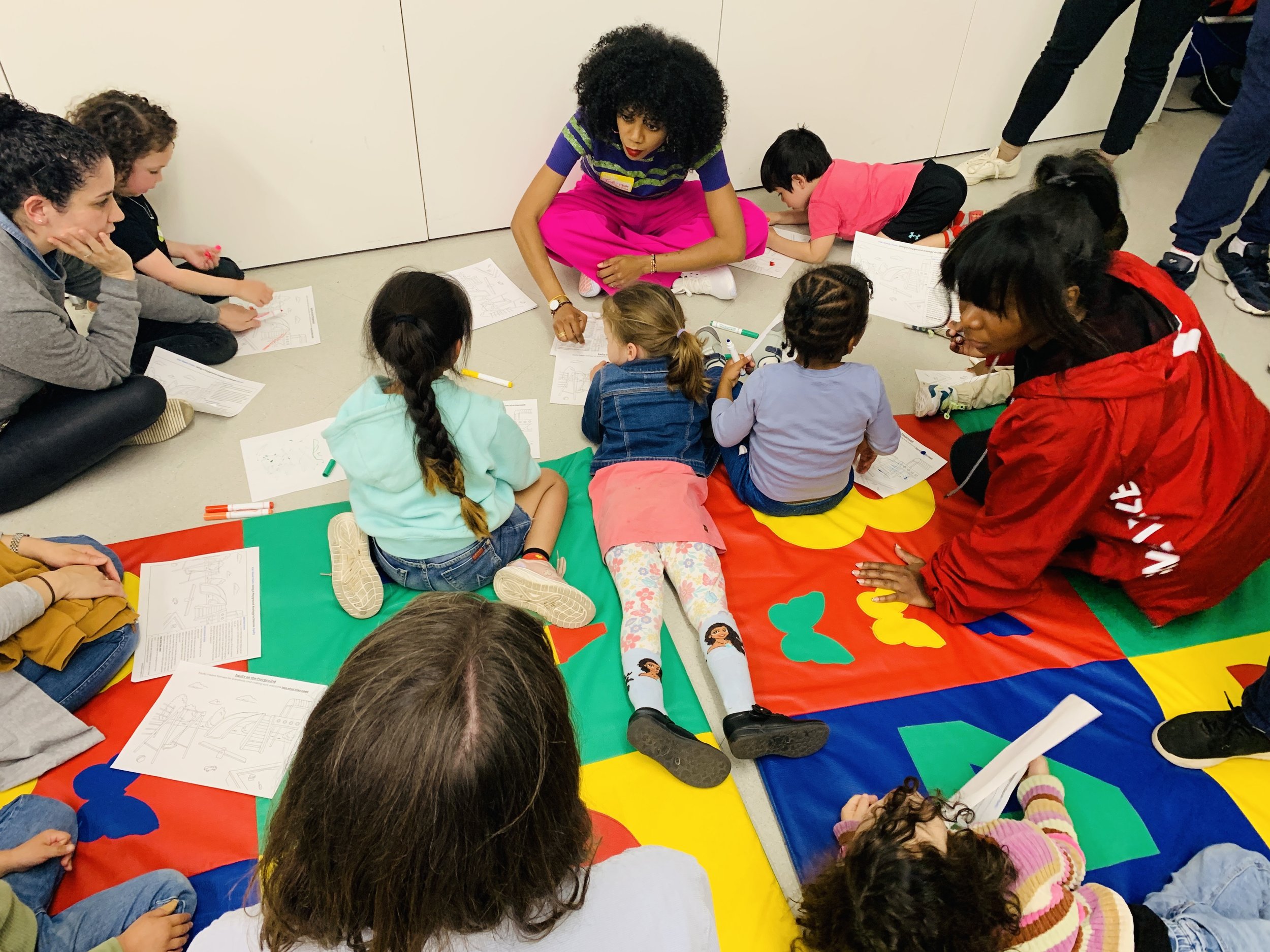This feminist is helping parents raise the next generation of antiracist kids
FEMINIST sat down with Tabitha to learn more about her approach to antiracist education:
Tabitha St. Bernard-Jacobs @tabithastb
Tabitha St. Bernard-Jacobs (she/her) is a Trinidadian-American award-winning writer and organizer who is a leading voice on raising antiracist kids. Through her consulting firm, Tabii Just Strategies, she has worked with libraries, schools, PTAs, religious institutions, and more to teach the next generation about antiracism and dismantling systems of oppression. Tabitha was also one of the founding organizers of the Women’s March on Washington, and has been recognized as one of 2024’s 100 Women To Know In America.
What does being a feminist mean to you?
Being a feminist means building a world with my family and community that works towards freedom for all people, including women of the global majority, trans women and gender nonconforming people, and true liberation for all people who have been pushed to the margins of society.
You've previously written about the joys of Black womanhood. What is your favorite thing about being a mother?
My favorite thing about being a mama is watching my children blossom into their own people, unique, separate from me and full of new insights and wisdoms that haven’t been affected by age. My 9-year-old is at an age where he is beginning to understand issues like ableism, racism and so forth and I absolutely love delving into these topics with him and seeing how his mind is processing these injustices while finding pathways to equity for all. I also love watching my 4-year-old begin her own journey of exploration.
We are so excited to learn more about your work with raising antiracist kids. What inspired you to start doing this work?
My partner and I have always been passionate about social justice and we would have these spirited discussions around our son about issues affecting the world. It was only when our son was 2 years old and he misidentified his race that we realized we hadn’t been taking the time or effort to translate it into age-appropriate AND kid-appropriate language. As we delved into that journey with intention and more than a few setbacks, we started sharing our learnings and mistakes on social media and soon, library systems, schools, PTAs, etc were asking us to bring our lessons to their communities. Our greatest inspiration is always our children and as they grow and learn, we grow and learn.
What are some common misconceptions about antiracist education?
I think the biggest misconception about antiracist education is that it will victimize kids of the global majority and it will make white kids feel bad about themselves. Antiracist education can actually do the opposite. It can help kids of the global majority make sense of what they might be experiencing as it pertains to racism and bias, while emboldening their self-identity and helping them feel seen and heard. For white kids, learning about antiracism can equip them with the tools needed to combat racism and bias not just when they become adults, but in the here and now.
You've done some excellent work to promote antiracist education in libraries, schools, PTAs, religious institutions and more. What do you think are currently the biggest barriers to kids receiving proper education on important social issues?
One of the biggest barriers is the attacks on accurate and factual education in schools. This includes banning books and certain curricula. When children are educated on history as it occurred, they can feel empowered to work towards ensuring that the ills of racism are eradicated and never re-occur. When we rob children of the truth, they enter the world with a warped view of society and community. It’s an injustice to not just them, but the future they will be building.
What advice would you give to parents who want to start teaching their kids about antiracism?
We get this question a lot, so my partner and I developed the 6 Building Blocks of Antiracist Parenting. We see it as a framework that parents can work with and add their own ideas:
Continuous Learning-Parents must commit to their own unlearning and learning. You can only teach your kids within the limits of your own knowledge.
Consistent Conversations-Keep talking to your kids about antiracism. It’s okay to let them know you don’t have all the answers. If they’re old enough, they can even do research with you.
Community Action-Find community to tackle racist systems. Follow the lead of people most negatively impacted by racism.
Reflective Media-Our children learn from the TV shows, Youtube shows, books and other media that surround them. Be intentional about reflecting our multiracial world through their media.
Intentional Environment-Seek out community activities that center antiracism
Parent/Caregiver Modeling-We are our kids’ first teachers through our actions more than our words.
What would parenting in an ideal feminist and antiracist future look like for you?
Parenting in an ideal feminist and antiracist future would mean that ALL kids and adults have access to what they need and desire to live happy, healthy, fulfilling lives filled with opportunities and a path to the future they want.






